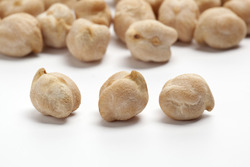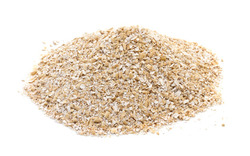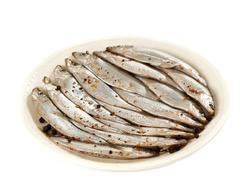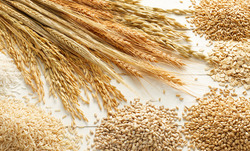25 Foods That Can Improve Your Health
Top 25 Beneficial Foods / Top 25 Foods You Should Avoid
Sometimes it feels overwhelming to make healthy diet choices. We at the Conscious Evolution Institute have compiled a guideline below in order to help you make more informed dietary decisions. The first section is filled with delicious and nutritious choices that provide amazing benefits to your overall health that many other foods just canâaot match.
The second group of foods is 25 foods that you should try to avoid. Although not all the foods are necessarily outright dangerous in moderation, they tend to be poor sources of nutrition and provide more long-term risks than benefits when consumed in excess.
25 Foods that Heal
Apricots are Packed with Nutrients
 Although apricots are not the most popular fruit eaten by American families, it is one of the healthiest choices. Apricots are absolutely loaded with nutrition. They are highest in Vitamin A, providing almost half of the suggested daily value. In addition to Vitamin A, Apricots also have high levels of Vitamin E and Vitamin C.
Although apricots are not the most popular fruit eaten by American families, it is one of the healthiest choices. Apricots are absolutely loaded with nutrition. They are highest in Vitamin A, providing almost half of the suggested daily value. In addition to Vitamin A, Apricots also have high levels of Vitamin E and Vitamin C.
Apricots also provide a significant amount of beta-carotene and iron. In addition to being nutritious, there is absolutely no fat in apricots, and the carbohydrate content is quite limited. There are only four grams of carbohydrates in apricot, and one gram of dietary fiber. Apricots are also a quality source of natural lycopene. Apricots are a good source of nutrition whether served fresh or dried, so the fruit makes an excellent choice for a low-carb trail mix.
Bananas are Better than Apples
 Although the two fruits look absolutely nothing alike, bananas and apples share similar nutrient content. Bananas have five times both the iron and Vitamin A content in comparison to apples.
Although the two fruits look absolutely nothing alike, bananas and apples share similar nutrient content. Bananas have five times both the iron and Vitamin A content in comparison to apples.
Also, they have triple the magnesium content. Bananas are a great energy food because they provide a large number of nutrients associated with energy and metabolism. The primary advantage that apples have over bananas is that they have slightly higher fiber content, but in terms of raw nutritional value, bananas are superior. The particular type of fiber in bananas is excellent for colon health, as well.
 In addition to this, bananas are one of the best available sources of potassium, which helps preserve muscle health and prevents painful cramping. Bananas are also a great energy food because they have a moderate amount of natural carbohydrates.
In addition to this, bananas are one of the best available sources of potassium, which helps preserve muscle health and prevents painful cramping. Bananas are also a great energy food because they have a moderate amount of natural carbohydrates.
This, combined with Vitamin A, Vitamin E, and other vitamins can give the body and mind a much-needed midday boost supplanting the need for unhealthy caffeine. Strangely enough, bananas may even provide emotional benefits as well. Bananas have a high amount of Tryptophan, which is a natural mood elevator that is also contained in turkey. This chemical induces feelings of relaxation.
Bean Benefits
 Beans are an important part of any diet because they are a vegetarian choice that is loaded with protein. Most fruits and vegetables have low or negligible protein content, which requires us to acquire a significant amount of our protein from animal sources. The latest dietary guidelines suggest that we consume three full cups of beans as a part of a healthy diet over the course of a week.
Beans are an important part of any diet because they are a vegetarian choice that is loaded with protein. Most fruits and vegetables have low or negligible protein content, which requires us to acquire a significant amount of our protein from animal sources. The latest dietary guidelines suggest that we consume three full cups of beans as a part of a healthy diet over the course of a week.
Beans also have a very high fiber content, which can help overweight patients lose pounds, or simply help keep health-conscious men and women at a healthy weight. Fiber causes us to feel full faster than any other vitamin or mineral.
Also, as mentioned above, it aids in digestion and colon health as well. Beans are also one of the best sources of nutrients known as phytochemicals. These are powerful anti-oxidants provided only by plants. There is evidence that these anti-oxidants absorb free radicals released by the chemical processes of the body, reducing the physical and neurological damage that could potentially result. Beans, along with potatoes, are among the best sources of niacin available to the body, which have the ability to enhance metabolism.
Bell Peppers Good for Health
 Bell Peppers are known for their vibrant colors and the spicy twang they can add to countless dishes. They also provide impressive nutritional and health benefits as well. Bell Peppers provide a significant amount of Vitamins C, A, and K.
Bell Peppers are known for their vibrant colors and the spicy twang they can add to countless dishes. They also provide impressive nutritional and health benefits as well. Bell Peppers provide a significant amount of Vitamins C, A, and K.
Vitamin K is essential for proper bone and cardiovascular health, and there is growing evidence that the vitamin can be a long-term defense against Alzheimer's disease and its many symptoms. Vitamin K is fantastic for the heart and helps prevent the hardening of the arteries.
Bell Peppers are also another solid source of lycopene, which is highly beneficial to eyesight. These peppers also provide moderate fiber and are a good source for a number of important phytochemicals. Red Bell Peppers are the best source of nutrition among the primary colors because they have the greatest levels of lycopene.
One phytochemical known as Beta-cryptoxanthin is also fairly unique among foods and has been shown to have a protective effect on the lungs and cardiovascular system, potentially reducing cancer risk associated with tobacco, both smoked and inhaled in the form of second-hand smoke. Bell Peppers also contain capsaicin, which is present in all peppers and foods and impart a spicy burn on the tongue.
Capsaicin reacts with heat sensors on the tongue, providing the invigorating burning sensation you feel when you eat peppers. This chemical also provides great health benefits as well. Capsaicin induces a physiological response, increasing heart rate, metabolism, and oxygen intake. Capsaicin has the ability to increase ambient calorie-burning which can aid in weight loss goals.
Although there are other peppers that contain more capsaicin, Bell Peppers are still a great source, and they are among the mildest of the peppers, so even those who are sensitive to spicy foods can benefit.
Broccoli Health Benefits
 Among the healthy greens, Broccoli is one of the most potent providers of nutrition. Broccoli is a great source of potassium, which benefits both the muscles and the nervous system while also increasing brain function as well. Broccoli also provides high levels of calcium and magnesium which are primary factors in the regulation of blood pressure, as well as encouraging strong and healthy bones.
Among the healthy greens, Broccoli is one of the most potent providers of nutrition. Broccoli is a great source of potassium, which benefits both the muscles and the nervous system while also increasing brain function as well. Broccoli also provides high levels of calcium and magnesium which are primary factors in the regulation of blood pressure, as well as encouraging strong and healthy bones.
A single cup of broccoli provides an entire Recommended Daily Value of Vitamin C, so broccoli can actually be great comfort food for those suffering from the common cold. Vitamin C has been shown to alleviate the symptoms of the common cold and in some cases, it appears that Vitamin C can actually prevent the Common Cold if taken in a high-enough dose when symptoms first start to appear.
Broccoli also contains Vitamin K which, in addition to Vitamin C, enhances bone health. Broccoli is also high in lutein, which benefits the eyes greatly and can slow down the effects of macular degeneration. Broccoli also provides almost medicinal benefits to the skin, providing a nutrient known as glucoraphanin which enhances the ability of skin cells to repair and heal, especially as a result of sun damage.
Glucoraphanin has also been proven to ward against stomach cancer as well, converting into sulforaphane, which eliminates cancer-causing bacteria from the stomach. Broccoli is beneficial in order to reduce the risk of prostate, cervical, and breast cancer as well. Broccoli is truly an immune booster! It increases beta-carotene levels which stimulate overall immune health.
Cantaloupe Health Benefits
 Cantaloupes provide a significant amount of both Beta-Carotene and Vitamin A. This fruit contains very high levels of Beta-Carotene which the body can use to generate its own supply of Vitamin A. The consumption of Vitamin A has also been proven to alleviate physiological issues related to smoking because cigarettes have been shown to induce Vitamin A Deficiency.
Cantaloupes provide a significant amount of both Beta-Carotene and Vitamin A. This fruit contains very high levels of Beta-Carotene which the body can use to generate its own supply of Vitamin A. The consumption of Vitamin A has also been proven to alleviate physiological issues related to smoking because cigarettes have been shown to induce Vitamin A Deficiency.
This means that Cantaloupe is a great food to eat in order to preserve eye health. Cantaloupe is also another fantastic source of Vitamin C, which builds immune health and stimulates the production of white blood cells.
One health benefit that makes cantaloupe unique from most other fruits is that it contains a protein known as Adenosine. Adenosine has incredible effects on blood pressure because it is a natural form of blood thinner which allows blood to move more fluidly through the circulatory system.
For patients who are sensitive to blood clots, adenosine can also slow down clotting and prevent dangerous build-ups in the blood vessels and arteries which can increase blood pressure and lead to devastatingly clogged arteries and increased risk of stroke.
Most melons contain a nutrient known as folate which increases cardiovascular health as well. In addition to this, folate plays a role in genetic health and is a key component in DNA construction. Folate is also a great source of potassium which, in addition to benefits provided to the muscles and bones, has been shown to reduce stress and anxiety because it helps modulate heart rate and increases oxygen flow.
Carrot Health Facts
 Carrots are widely known for the benefits that they provide to eyesight. This is because of the high levels of Vitamin-A and Beta-Carotene contained within the veggie. It has been shown that other compounds found in carrots known as flavonoids have the ability to protect the body from a number of different cancers such as mouth, lung, and skin cancer.
Carrots are widely known for the benefits that they provide to eyesight. This is because of the high levels of Vitamin-A and Beta-Carotene contained within the veggie. It has been shown that other compounds found in carrots known as flavonoids have the ability to protect the body from a number of different cancers such as mouth, lung, and skin cancer.
One of the primary benefits that carrots provide that sets them apart in addition to Vitamin-A and Beta-Carotene is that carrots are root vegetables absolutely loaded with vitally important minerals, such as phosphorus, manganese, potassium, calcium, and copper.
Manganese is an incredibly important mineral that stimulates metabolism in all organ systems of the body. It seems to follow many pathways with Human Growth Hormone, helping the bones, muscles, skin, and cardiovascular system rebuild and regenerate more efficiently.
In addition to this, manganese is another nutrient that breaks down free radicals, reducing physiological deterioration and reducing cancer risk. Carrots are also full of a variety of B-Vitamins as well. Another unique benefit of carrots is that they contain a compound known as falcarinol which has been shown to be a highly potent anti-cancer agent. The current body of research presents significant and promising evidence that falcarinol has the ability to target and destroy precancerous cells before they become malignant and represent a danger to the human body.
Garbanzo Beans Nutritional Benefits
 Garbanzo beans are another amazing protein source for those who wish to reduce the amount of meat they consume in their weekly diet. In the United States, they are very often referred to as chickpeas. In addition to their high protein content, Garbanzo beans have been proven to be an appetite suppressant due to their high fiber content.
Garbanzo beans are another amazing protein source for those who wish to reduce the amount of meat they consume in their weekly diet. In the United States, they are very often referred to as chickpeas. In addition to their high protein content, Garbanzo beans have been proven to be an appetite suppressant due to their high fiber content.
They are incredibly filling and are a useful tool to prevent overeating, especially when consumed as a first course. Mediterranean and Indian cultures use Garbanzo Beans heavily, as it is the primary ingredient of hummus. Hummus has also been shown to improve the body's ability to regulate blood glucose levels and can actually increase endogenous insulin production in diabetic or glucose-sensitive patients.
Garbanzo beans are amazing for intestinal health also and should be at the top of the grocery list in terms of digestive health. Pro-biotic bacteria in the stomach have the ability to break down garbanzo bean fiber and convert it into short-chain fatty acids which optimize colon health. These beans are a healthy source for anti-oxidants as well, which cause a number of positive benefits throughout the body.
Garlic Health Benefits
 Garlic is one of the most popular herbs used in American cuisine, and when used correctly can provide some incredible health benefits. It is more beneficial to consume garlic as freshly as possible. Although garlic powder imparts the flavor of garlic, the process of extraction removes most of the nutritional benefits. Garlic is poorly digested raw, so it must be lightly cooked before consumption.
Garlic is one of the most popular herbs used in American cuisine, and when used correctly can provide some incredible health benefits. It is more beneficial to consume garlic as freshly as possible. Although garlic powder imparts the flavor of garlic, the process of extraction removes most of the nutritional benefits. Garlic is poorly digested raw, so it must be lightly cooked before consumption.
Garlic is sometimes prescribed as an herbal remedy and produces significant benefits in regard to cardiovascular health, reducing blood pressure and lowering LDL âaubadâau cholesterol.
There is also evidence that Garlic has anti-biotic qualities which bolster the immune system's ability to defeat outside infections. It appears that bacteria do not develop a natural biotic resistance to Garlic like it has a tendency to do for anti-biotic medications, so it is highly beneficial to maintain garlic intake and even increase intake when prescribed anti-biotic medicine in order to maximize benefits and speed up the recovery process. Garlic is also another fine source of Antioxidants that protect the body from raging free radicals. Garlic is simple to add to any dish and can add zest to nearly any particularly succulent meal.
Dark Green Vegetables (Chard, Spinach, etc.)
 Chard and Spinach are considered the two most nutrient-rich vegetables widely available in the world today. Both are very high in calcium, although spinach contains more. Both of these leafy greens provide a significant portion of iron which is necessary for optimal cardiovascular function.
Chard and Spinach are considered the two most nutrient-rich vegetables widely available in the world today. Both are very high in calcium, although spinach contains more. Both of these leafy greens provide a significant portion of iron which is necessary for optimal cardiovascular function.
This form of iron is known as nonheme iron. This form of iron can only be absorbed and utilized by the body in combination with Vitamin-C. Heme iron comes from meat and can be processed by the body immediately, but with the use of a proper diet and/or nutritional supplements, you should have no problems with Vitamin-C Deficiency.
Chard and Spinach both provide a decent amount of Vitamin C. Spinach and Chard both contain anti-inflammatory anti-oxidants which can alleviate chronic pain and reduce or eliminate many sources of short-term inflammation. Both of these veggies also contain healthy amounts of lutein which improve eye health.
There is also a lot of evidence that dark green vegetables such as spinach, kale, and chard can increase cognitive health as well. Studies have shown that individuals who consume large amounts of leafy greens have improved mental outcomes with age. These vegetables are highly nutritious, widely available, and are often best consumed raw, making them a no-nonsense way to increase the nutritional content of your daily meals without padding calorie content.
Kiwi Superfood
 Kiwis are jam-packed with nutritional content while also being very brightly flavored. A single full-sized kiwi provides enough Vitamin C for a whole day, while two medium-sized Kiwis contain around 275% of the recommended daily value! In addition to this, kiwi is highly valuable because it is one of the only fruits which provide Vitamin E. Vitamin E is a group of eight fat-soluble molecules that provide a number of benefits throughout the body and are known in particular for their anti-oxidant value.
Kiwis are jam-packed with nutritional content while also being very brightly flavored. A single full-sized kiwi provides enough Vitamin C for a whole day, while two medium-sized Kiwis contain around 275% of the recommended daily value! In addition to this, kiwi is highly valuable because it is one of the only fruits which provide Vitamin E. Vitamin E is a group of eight fat-soluble molecules that provide a number of benefits throughout the body and are known in particular for their anti-oxidant value.
Vitamin E also promotes health at a genetic level by reducing free radicals and preventing genetic abnormalities from developing as a result of the aging process, including cancer. It has also been shown that Vitamin E produces several powerful neurological benefits as well.
Kiwi provides significant amounts of Potassium and useful levels of Vitamin A. Kiwis contain a high fiber content which make them an excellent choice for individuals concerned about maintaining regularity along with colon health. Kiwis are also very low in sugarâaethey contain one-third the amount of sugar that is in an apple of a similar size. Kiwis also contain the potassium that bananas provide while, calorie for calorie, producing enhanced benefit!
Kiwis, like Garbanzo Beans, are a great option to consume at the start of a meal because the fiber levels contained within them reduce feelings of hunger and will help you eat a more responsibly-portioned dinner without feeling hungry afterward. Kiwis are another unique source of Vitamin-K as well, which aids cardiovascular health by ensuring that blood pressure is regulated while discouraging excess clotting. There is also growing evidence that nutrients within Kiwi have the ability to alleviate asthma. Kiwi is a powerful punch of nutrition in a small package!
Lamb Meat Healthier than Beef
 As opposed to beef, lamb contains more unsaturated and mono-unsaturated fat, which provides far greater health benefits. Also, Lamb provides a high level of B Vitamins which are incredibly important for metabolic health. Lamb contains a full day's requirement of Vitamin B-12, one of the few nutrients that can solely be provided by meat products. B12 is absolutely necessary to maintain the proper nervous system and brain health.
As opposed to beef, lamb contains more unsaturated and mono-unsaturated fat, which provides far greater health benefits. Also, Lamb provides a high level of B Vitamins which are incredibly important for metabolic health. Lamb contains a full day's requirement of Vitamin B-12, one of the few nutrients that can solely be provided by meat products. B12 is absolutely necessary to maintain the proper nervous system and brain health.
Lamb is one of the best available sources of protein availableâaeIt contains all eight of the essential proteins needed for optimal health. A single three-ounce serving contains nearly half of the recommended daily allowance of protein.
If you are looking to knock out your protein consumption efficiently with relatively low calories, Lamb is an amazing dish. Lamb essentially provides all of the benefits and positives of beef while minimizing the negative aspects of red meat consumption and providing even an even greater nutritional spectrum. Lamb is also one of the best available resources for obtaining zinc, which is another vital component of proper immune health.
In combination with dark leafy greens such as spinach, you will also be able to fulfill the majority of your need for iron in one delicious sitting! Lamb is also unique because it is the best widely-available source of Conjugated Linoleic Acid. There is evidence that this Omega-6 Fatty Acid has the ability to improve body fat distribution by reducing levels of adipose fat around the midsection in a manner that can be compared to Human Growth Hormone.
Oat Bran for Healthy Cholesterol and Weight Control
 Oat Bran is one of the healthiest grains that you can eat. Research has shown that Oat Bran has the ability to reduce LDL cholesterol when part of a balanced and healthy diet.
Oat Bran is one of the healthiest grains that you can eat. Research has shown that Oat Bran has the ability to reduce LDL cholesterol when part of a balanced and healthy diet.
Because of this, Oat Bran is correlated with improved cardiovascular health, because the grain prevents the buildup of dangerous plaque deposits in the arteries which can eventually lead to cardiovascular disease and heart attack.
Oat Bran also has the ability to help regulate blood sugar in a way that other more processed grains simply cannot.
Oat Bran slows down the rate at which carbohydrates are broken down by the digestive system, which causes the pancreas to release insulin at a much more balanced level which prevents unhealthy spikes in insulin levels which can erode the pancreas' ability to regulate insulin production properly over time.
Oat bran is one of the best tools to ward off or soften the effects of diabetes. In combination with water intake, oat bran can also be highly beneficial to those who wish to control or lose weight.
Another benefit of oat bran is that it has the ability to absorb large amounts of water. When water is drunk alone, it cycles quickly through the system. When water is consumed in combination with a dense fiber such as oat bran, the water is largely absorbed by the fiber and tricks the body into thinking that the stomach is more full of food content than it actually is. The fiber in oat bran also benefits colon and digestive health by preventing constipation and encouraging regularity.
Benefits of Onions for Health
 Onions are a vegetable relative of garlic and are similarly loaded with incredible nutritional and mineral content. When you tear up when you chop an onion, this is evidence of the high flavonoid content of the powerfully pungent veggie.
Onions are a vegetable relative of garlic and are similarly loaded with incredible nutritional and mineral content. When you tear up when you chop an onion, this is evidence of the high flavonoid content of the powerfully pungent veggie.
Onions are also one of the best available sources of sulfur in the diet. There are certain important minerals that only root vegetables such as onions, carrots, and garlic can provide. When combined with healthy proteins, sulfur enhances the benefits provided by amino acids unlocked in the proteins, which amplifies benefits to brain and nervous system health.
Yellow and red onions are the single most potent source of one particular flavonoid known as quercetin among all vegetables. This anti-oxidant has a wide range of beneficial effects. It has been proven to increase healthy HDL cholesterol levels while lowering bad LDL cholesterol.
It is a natural blood thinner that prevents excessive blood clotting. It can also greatly reduce the risk of stomach cancer. In addition to this, quercetin is also a potent antibiotic and anti-inflammatory chemical.
Foods that contain sulfur such as onions and garlic also have the ability to latch on to harmful chemicals and escort them out of the body, reducing the dangers to the body provided by ambient lead, cadmium, and mercury exposure. Onions also have the ability to prevent and eliminate food sickness caused by salmonella and e.coli. Onions are the perfect partner for dishes high in protein, because the benefits go hand in hand, increasing the health benefits of both foods.
Oranges for Vitamin C and Weight Control
 Oranges are one of the most commonly available and effective means of providing Vitamin C. Although Kiwi provides more vitamin C, many people prefer the flavor of oranges.
Oranges are one of the most commonly available and effective means of providing Vitamin C. Although Kiwi provides more vitamin C, many people prefer the flavor of oranges.
Oranges are also a high source of a form of dietary fiber known as pectin, which has been shown to work wonders for patients who want to lose weight or overcome obesity. In addition to this, oranges have no cholesterol or saturated fat, so they provide the stomach with a feeling of fullness without padding it with empty calories.
Pectin also benefits cardiovascular health by helping the body regulate cholesterol. It achieves this by binding to receptor sites that would normally absorb cholesterol from the colon. By reducing reabsorption rates and increasing overall expulsion rates, Pectin reduces calorie consumption by multiple effective means.
Oranges are also a great source of a number of important vitamins discussed above such as Vitamin A, lutein, and beta-carotene. Flavonoid-rich foods such as oranges have fantastic anti-oxidant capabilities which have the ability to prevent mouth, throat, and lung cancer. Oranges also provide a wide range of B-Vitamins, reducing the need to look toward multiple sources to fulfill one's daily needs.
Papaya for Anti-Cancer, Heartburn, and Immune Health
 Papaya provides many potent benefits provided to other citrus fruits, but it also has one unique and absolutely fantastic nutritional benefit. Papaya contains a digestive protein known as papain. This chemical is also known by the name vegetable pepsin.
Papaya provides many potent benefits provided to other citrus fruits, but it also has one unique and absolutely fantastic nutritional benefit. Papaya contains a digestive protein known as papain. This chemical is also known by the name vegetable pepsin.
This enzyme has the ability to greatly improve gastrointestinal health. It has been widely touted as an absolutely natural medical treatment for heartburn, and medical research seems to corroborate anecdotal evidence. Papaya also contains vitamins and minerals which have the ability to treat certain forms of cancer. It may also boost immune health as well as proper lung function.
Papaya, like many of the other savory members of the melon family, has high levels of folate and dietary fiber. Papaya is another member of the relatively limited sources of Vitamin-K as well.
It also contains vitamins A, E, and C in addition to potassium. Papaya is also highly beneficial for the prevention of prostate cancer because of the significant amounts of lycopene contained within the fruit. It is recommended that the combination of papaya and potent green tea can provide all of the lycopene needed to maximize resistance to prostate cancer.
Fresh Pasta vs. Store-Bought Pasta
 One of the key things to look for when trying to eat a healthy diet is to avoid over-processed foods. Pasta is among the most over-processed food that Americans regularly eat. Fresh pasta provides benefits that highly-processed pasta simply can't match. Processed pasta goes through a number of steps that reduce nutritional content. Processed pasta is rapidly dried with heat.
One of the key things to look for when trying to eat a healthy diet is to avoid over-processed foods. Pasta is among the most over-processed food that Americans regularly eat. Fresh pasta provides benefits that highly-processed pasta simply can't match. Processed pasta goes through a number of steps that reduce nutritional content. Processed pasta is rapidly dried with heat.
The temperature reaches such great levels that many of the nutrients are eliminated from the final product. Fresh pasta is also healthier because it has been treated less. Many forms of pasta go through a bleaching process in order to achieve uniform color. Although this bleaching process is not dangerous, it leaches the vitamin content from the food.
Also, one reason that fresh pasta is so much healthier is that it contains complex carbohydrates and fibers. Processed pasta is basically broken down into its component parts and reformed.
One of the reasons that complex carbs and fiber are so beneficial to the body, especially the digestive system and for general metabolism is because the human body has to break down these complex nutrients before they can be used by the body. When this nutritional content is broken down in a factory by external sources, that means that the body does not have to work as hard to obtain the raw nutrients, which means that rather than expending calories to break down complex foods, that material goes straight into the body where it is often converted directly into fat.
Baked Potatoes Are a Dense Source of Nutrition
 We often think of potatoes as incredibly unhealthy food, but that is a gross misconception. Potatoes are unhealthy because we make them unhealthy. Slathering a baked potato with butter and sour cream is one that makes it bad for you.
We often think of potatoes as incredibly unhealthy food, but that is a gross misconception. Potatoes are unhealthy because we make them unhealthy. Slathering a baked potato with butter and sour cream is one that makes it bad for you.
French fries are dipped in hot fryers full of vegetable oilâaepotato chips as well. Baked Potatoes are high in carbohydrates and should be consumed intelligently, but the benefits they provide are fantastic. A large baked potato contains less than three hundred calories and contains a full seven grams of protein.
Potatoes are another strong source of folate, vitamin B-6, and Vitamin C, but unlike most of the foods listed above, potatoes contain a high level of niacin. Niacin is another vitamin that has the ability to greatly enhance overall metabolism. A big potato has around twenty percent of one's daily requirement of both folate and niacin. Baked potatoes are another great source of iron and are an amazing source of potassium, providing nearly half of the recommended daily value. It is important to remember that root vegetables are the best veggies for providing maximum mineral benefit!
Soybeans Misunderstood Health Food
 Soybeans load a ton of potential energy into a small and healthy package. Soybeans provide some of the highest levels of plant protein available in the legume family. Soybeans also contain mostly unsaturated fat which is healthier for the body than its saturated counterpart.
Soybeans load a ton of potential energy into a small and healthy package. Soybeans provide some of the highest levels of plant protein available in the legume family. Soybeans also contain mostly unsaturated fat which is healthier for the body than its saturated counterpart.
Although excess fat consumption is unhealthy, it is normal to consume a modest amount of fat which is preferably unsaturated or monounsaturated. These forms of fat have the ability to reduce LDL cholesterol levels in order to improve cardiovascular health.
Soybeans are also loaded with a number of vital photoproteins, the most significant of which is genistein. The consumption of this form of photoprotein has been correlated with a reduced risk of a number of different types of cancer. Genistein has been shown to improve the effectiveness of a number of other photoproteins, magnifying their health benefits in the human body. To maximize the cholesterol benefits of soybean oil, attempt to find soybean oils that are high in unsaturated and monounsaturated fat. Soybeans have also been shown to reduce the risk of heart disease as well.
Surprising Benefits of Tomatoes
 Fresh tomatoes are a wonderful source of a number of different nutrients. Tomatoes are loaded with Vitamins K, C, and A. Tomatoes are also a wonderful source of Potassium and Folate as well. This delicious food is also very low in calories as well, which makes tomatoes an amazing dietary option for people who are highly conscious about their calorie intake.
Fresh tomatoes are a wonderful source of a number of different nutrients. Tomatoes are loaded with Vitamins K, C, and A. Tomatoes are also a wonderful source of Potassium and Folate as well. This delicious food is also very low in calories as well, which makes tomatoes an amazing dietary option for people who are highly conscious about their calorie intake.
Tomatoes are also loaded with a number of essential minerals, which are relatively rare among common vegetables. Tomatoes contain copper, phosphorus, and magnesium, which are among the most vital mineral nutrients that the human body requires for proper function.
Tomatoes are also an awesome choice for satiating hunger because they have a high water content combined with a significant level of fiber. When water and fiber combine in the stomach, they produce an enhanced feeling of fullness which reduces the physiological desire for overeating. Tomatoes also provide significant benefits for skin health because they are loaded with lycopene and Beta-carotene. Lycopene also presents a number of other amazing health benefits ranging from cancer prevention to preservation of bone health.
Benefits of Tuna Fish
 Tuna is one of the healthiest and most affordable sources of animal nutrition available. In addition to being a fine source of protein, tuna is a very proficient source of Omega-3 Fatty Acids. These fatty acids provide a number of different health benefits, and a single portion of tuna provides a high dose of these essential fatty acids. Omega-3 Acids have been proven to reduce unhealthy LDL cholesterol and thin the blood, increasing cardiovascular health and reducing the risk of blood clots and dangerous plaque buildup.
Tuna is one of the healthiest and most affordable sources of animal nutrition available. In addition to being a fine source of protein, tuna is a very proficient source of Omega-3 Fatty Acids. These fatty acids provide a number of different health benefits, and a single portion of tuna provides a high dose of these essential fatty acids. Omega-3 Acids have been proven to reduce unhealthy LDL cholesterol and thin the blood, increasing cardiovascular health and reducing the risk of blood clots and dangerous plaque buildup.
These fatty acids have also been shown to increase ocular health, strengthening eyesight and preventing or slowing down the effects of macular degeneration. Tuna is also a fantastic source of EPA one of the Omega-3 acids which have been strongly linked to improved emotional health and the alleviation of depression.
EPA also has been shown to optimize hormone balance and improve the body's ability to secrete vital hormones such as Testosterone, Estrogen, and Human Growth Hormone. Omega-3 Acids present in tuna have also been linked to increased cognitive outcomes. Healthy consumption of tuna and other sources of Omega-3 fatty acids has been shown to reduce the risk of devastating mental diseases such as Alzheimer's disease.
Tuna is also a potent source of the mineral Selenium, which plays an important role in physiological detoxification and liver health. Selenium is a vital mineral in ensuring that toxic compounds and substances are excreted from the human body before they can cause damage. Tuna is an affordable and incredibly dense source of nutrition that provides far more benefits than many common forms of terrestrial fauna such as beef and pork.
Turkey Nutrition Facts
 Turkey is a delicious and nutritious supplement for chicken that can provide incredible health benefits while also providing the taste and texture of common poultry. If you are looking for a single source to obtain a significant amount of protein intake, one serving of turkey provides over sixty percent of the recommended value of daily protein.
Turkey is a delicious and nutritious supplement for chicken that can provide incredible health benefits while also providing the taste and texture of common poultry. If you are looking for a single source to obtain a significant amount of protein intake, one serving of turkey provides over sixty percent of the recommended value of daily protein.
Turkey is similar to tuna in that it is another potent source of selenium, which has been shown to decrease cancer risk while also reducing the toxic effects of a number of different carcinogens.
When looking for turkey which is optimally beneficial, it is important to attempt to consume grass-fed or organically fed turkey to obtain the healthiest form of turkey meat.
Turkey is also the most commonly known source of the organic compound tryptophan, which has been shown to be a natural source of mood elevation which chemically reduces feelings of anxiety and depression. Also, if you are looking for a savory source for obtaining vital B Vitamins, a single serving of turkey provides high levels of both B6 and B3.
Turkey is also one of the best proteins to consume in order to regulate insulin levels, so Turkey is a great choice for individuals who are insulin-resistant or diabetic. The proteins contained within turkey are processed slowly by the digestive system, which causes them to increase blood sugar levels at a very slow rate that even the most sensitive systems can tolerate. If you are a huge fan of poultry, turkey is probably the best widely available substitute in order to help you maximize your good health.
Yam Health Benefits
 Although potatoes are a fine source of nutritional value, they do not provide all of the necessary nutrients provided by root vegetables. In addition to potatoes, yams are a healthy and nutritious supplement. Yams provide a significant amount of vital potassium, which has a highly beneficial effect on blood pressure.
Although potatoes are a fine source of nutritional value, they do not provide all of the necessary nutrients provided by root vegetables. In addition to potatoes, yams are a healthy and nutritious supplement. Yams provide a significant amount of vital potassium, which has a highly beneficial effect on blood pressure.
Another advantage that yams have in comparison to potatoes is that they are a potent source of Vitamin B6. Vitamin B6 is not produced naturally by the human body and is a required nutrient in order to metabolize a compound known as homocysteine. If homocysteine levels are too high, they can result in the breakdown of blood vessels throughout the cardiovascular system.
High homocysteine levels are intricately linked to higher instances of both stroke and heart disease, both of which can significantly decrease life expectancy. Yams also have incredible holistic benefits for females who suffer from symptoms of estrogen imbalance. Women who consume organic sources of yam have been shown to experience less aggressive symptoms of menopause. Physicians even claim that for some patients yam consumption can elevate estrogen levels to an extent to which Estrogen Replacement Therapy is not required.
Yams are also considered a superfood because they contain nutrients known as diosgenins which are rare in most foods consumed in the Western diet. Diosgenins are biologically similar to the human sex hormone derivative known as progesterone. Although the two hormones are chemically similar, diosgenins are not a true substitute for progesterone, but there is proof that this unique nutritional ingredient provides a number of physiological benefits provided by progesterone within the human body, including improving bone health.
Yams are also a powerful source of both fiber and complex carbohydrates, which makes yams an amazing food both for encouraging feelings of fullness and enhancing innate metabolism.
Yogurt for Health
 For health-conscious men and women, yogurt should be a go-to source of many forms of nutrition that are not easily acquired from other sources. Yogurt is an awesome source for a number of different healthy forms of bacteria which bolster gastrointestinal health. The manner in which yogurt is prepared encourages the development of healthy forms of bacteria which are necessary for proper stomach and intestinal digestion.
For health-conscious men and women, yogurt should be a go-to source of many forms of nutrition that are not easily acquired from other sources. Yogurt is an awesome source for a number of different healthy forms of bacteria which bolster gastrointestinal health. The manner in which yogurt is prepared encourages the development of healthy forms of bacteria which are necessary for proper stomach and intestinal digestion.
Yogurt is one of the most efficient natural sources of probiotics. Yogurt bacteria have been shown to alleviate symptoms of multiple physiological conditions such as diarrhea, constipation, lactose intolerance, colon cancer, and IBS. Yogurt also provides significant immune benefits, increasing the body's ability to combat numerous illnesses. In addition to healthy bacteria, yogurt also provides the same nutritional benefits provided by other milk products including magnesium, potassium, and multiple B vitamins.
Also, yogurt is a concentrated source of both vitamin D and calcium, which are necessary in order to optimize bone health and prevent osteoporosis. Yogurt is the most potent source of the benefit provided by milk-based products while increasing the body's ability to tolerate other forms of milk products as well.
WaterâaeThe most important nutrient of all!
 The common wisdom has always been that eight glasses of water per day is vital to the proper function of the human body. Today, our knowledge of the benefits of water is slightly more nuanced. It is important to consume the equivalent of eight glasses of water per day through the various sources by which liquids can be consumed whether through the direct consumption of pure water or through juices or foods which are rich in water content such as tomatoes and fruits.
The common wisdom has always been that eight glasses of water per day is vital to the proper function of the human body. Today, our knowledge of the benefits of water is slightly more nuanced. It is important to consume the equivalent of eight glasses of water per day through the various sources by which liquids can be consumed whether through the direct consumption of pure water or through juices or foods which are rich in water content such as tomatoes and fruits.
Water is necessary for proper human function because our bodies require a particular level of water in order to remain fully functional. Proper fluid consumption is particularly important to the kidney system.
The kidneys are the body's filtration system, and if you consume too little water, then the kidneys do not have enough fluid in order to properly cycle waste products out of the body through the urine and this increases the odds of a number of detrimental medical issues. Proper hydration also increases skin health by providing skin cells the proper amount of fluid to remain robust and healthy, preventing damage associated with aging while also reducing the appearance of fine lines and wrinkles.
Twenty-Five Foods to Avoid
Anchovies are a Poor Dietary Choice
 Although anchovies provide some health benefits, including providing minerals such as selenium, calcium, and niacin, there are many other sources of fish protein that provide benefits more efficiently with fewer risks. Anchovies have one of the highest salt contents among all fish, which can exacerbate existing hypertension. Nutritional guidelines suggest that individuals should consume no more than 2,300 milligrams of sodium each day. One serving of anchovies contains over 1500 milligrams of sodium.
Although anchovies provide some health benefits, including providing minerals such as selenium, calcium, and niacin, there are many other sources of fish protein that provide benefits more efficiently with fewer risks. Anchovies have one of the highest salt contents among all fish, which can exacerbate existing hypertension. Nutritional guidelines suggest that individuals should consume no more than 2,300 milligrams of sodium each day. One serving of anchovies contains over 1500 milligrams of sodium.
Salt is relatively common among nearly all foods we consume as Americans, and to consume so much salt in a single serving all but ensures that we will vastly over-consume salt through the course of our daily diet. Anchovies are also regularly contaminated by high levels of toxic elements such as mercury, meaning that regular consumption can lead to long-term health issues.
Negative Effects of Alcohol on Health
 Although modest consumption of alcohol produces few negative consequences, a large number of Americans consume far too much alcohol, and this can be incredibly detrimental to health. Alcohol abuse inevitably leads to severe liver problems. The liver is one of the primary filtration organs, along with the kidneys.
Although modest consumption of alcohol produces few negative consequences, a large number of Americans consume far too much alcohol, and this can be incredibly detrimental to health. Alcohol abuse inevitably leads to severe liver problems. The liver is one of the primary filtration organs, along with the kidneys.
If liver function is impaired, it severely restricts the body's ability to get rid of unhealthy compounds which can hinder the body's proper function. Alcohol also inhibits the human body's ability to process vital nutrients which can lead to major issues with overall malnutrition.
Excess alcohol consumption has also been linked to a number of issues such as diabetes and high blood sugar, heart disease, and kidney disease. Alcohol is also lethally dangerous to fetuses and can cause a number of fetal abnormalities when consumed irresponsibly during pregnancy.
Alcohol also causes a number of different psychological effects, the most common of which are depression and insomnia, and increased anxiety. When used sparingly and intelligently, alcohol is not overly harmful, but it is imperative that alcohol use is moderated intently in order to ensure that negative effects are not experienced.
Bacon is Terrible for your Health
 Although bacon is popularly considered one of the most delicious meats available today, bacon is incredibly negative for general health. One of the main reasons that bacon is unhealthy is that it is a form of meat that is incredibly loaded with salt content.
Although bacon is popularly considered one of the most delicious meats available today, bacon is incredibly negative for general health. One of the main reasons that bacon is unhealthy is that it is a form of meat that is incredibly loaded with salt content.
In this world where salt is incredibly easy to come by, it is important to avoid excess salt content by any means necessary. Another reason that bacon is unhealthy is that bacon is loaded with saturated fat which produces numerous negative health consequences.
It is important to choose protein sources that are high in unsaturated and monounsaturated fat. It is important to consume a very modest amount of fat content, but saturated, polyunsaturated, and trans-fats are incredibly unhealthy and can lead to many long-term health problems when consumed too often.
Another reason that bacon and similar sources of fatty protein are unhealthy is that they are incredibly processed. Processed foods are bad choices for food because the human body is designed to break down complex foods. When foods are over-processed, it decreases the amount of work that the body has to perform to convert calories into fat. Bacon reduces cardiovascular health while also being a dense source of calories from fat.
Fresh Fruit is far healthier than Canned Fruit
 Although a number of the most amazing foods available for good health are fruits, it is important to avoid canned fruits whenever possible in order to consume fresh fruits.
Although a number of the most amazing foods available for good health are fruits, it is important to avoid canned fruits whenever possible in order to consume fresh fruits.
One of the main problems with canned fruits is that these fruits are often loaded with high levels of preservatives which are detrimental to health in a number of different ways. Also, canned fruits are often loaded with high fructose corn syrup or other forms of sugar in order to enhance flavor which has been broken down by the canning process.
Canned fruit is also exposed to high temperatures which break down the nutritional content of fresh fruit. Although many vegetables are rendered digestible by the cooking process, most fruits are designed by nature in order to be consumed as freshly as possible.
When you are unable to consume fresh fruit, canned fruit can make a lackluster alternative, but if you want to maintain your health as best as possible it is important to focus on eating sources of fresh fruit.
Canned Soups should be Consumed Sparingly
 Canned soups suffer from a similar fate as canned fruits. Whereas canned fruits are loaded with processed sugars, canned soups are loaded with salt content. Look at the back of canned soup next time you are at the grocery store. A single serving of noodle soup can contain as much as 40% of your daily required salt content.
Canned soups suffer from a similar fate as canned fruits. Whereas canned fruits are loaded with processed sugars, canned soups are loaded with salt content. Look at the back of canned soup next time you are at the grocery store. A single serving of noodle soup can contain as much as 40% of your daily required salt content.
Even canned soups which advertise themselves as low sodium still have a significant amount of salt content. Low Sodiumâau canned soups regularly contain 20%-30% of the daily required salt content. Like fat, salt is a required nutrient that is overly abundant in western society.
Another reason that canned soups are unhealthy is that they are frequently loaded with unhealthy preservatives such as monosodium glutamate, commonly known as MSG. Although Americans commonly associate MSG with Chinese Food and buffet restaurants, MSG is common in a number of Western processed foods---especially in soups. MSG is used in order to increase the savoriness of foods while not increasing the nutritional content of foods. The problem with MSG is that it can cause neurological abnormalities when consumed in excess.
Soup can be incredibly healthy and filling when acquired from healthy sources or produced at home. The high water content of fresh soups makes it an incredibly filling first course, but consuming salt- and preservative-laden concoctions greatly negates the benefits of eating processed soups.
Why is Chocolate Unhealthy?
 One of the primary reasons that chocolate is unhealthy is that it can encourage weight gain, not only through the inherently high-calorie content of foods that contain chocolate but because of compounds contained within chocolate that increase the human body's propensity for weight gain.
One of the primary reasons that chocolate is unhealthy is that it can encourage weight gain, not only through the inherently high-calorie content of foods that contain chocolate but because of compounds contained within chocolate that increase the human body's propensity for weight gain.
There is evidence that dark chocolate can provide some cardiovascular benefits, but these benefits coincide with a number of other unhealthy issues which result from chocolate consumption.
Chocolate is also very high in saturated fat which produces significant negative effects on the human body. A single serving of chocolate contains over one-half of your daily requirement of saturated fat.
In addition to this, chocolate has an incredibly high-calorie content which is mostly in the form of simple sugars, which are converted quickly into unhealthy adipose fat tissue. Although chocolate is delicious, it should only be eaten in a very sparing manner.
Fried Foods Are Very Unhealthy
 The human body is predisposed to finding foods with a high-fat content delicious. Although in our evolutionary past, high-fat food sources provided significant energy boosts in life, today, high-fat and sodium foods are highly abundant.
The human body is predisposed to finding foods with a high-fat content delicious. Although in our evolutionary past, high-fat food sources provided significant energy boosts in life, today, high-fat and sodium foods are highly abundant.
For 21st-century humans, there is absolutely no benefit to friend foods. Fried foods simply add unnecessary carbohydrates and saturated fats to foods that would normally be far healthier in their natural form.
If you must eat fried foods, consume them very sparingly, understanding that they are a treat and add little to daily nutritional value. Another problem with fried foods is that nutritional content is greatly diminished because the extremely high temperatures reached by the frying process break down the vital nutrients contained within normal foods, rendering them less healthy even when discounting the effects of carbohydrate and oil saturation. There is literally no case in which fried food is a desirable alternative when compared to its grilled, baked, or broiled counterpart.
Gravy Should be Avoided
 Gravies are often used to impart savoriness and flavor to common foods, but there is little to no genuine nutritional benefit provided by gravies. Gravy is very simple to create. It is essentially animal fat combined with processed flour. There are a number of reasons why this is unhealthy.
Gravies are often used to impart savoriness and flavor to common foods, but there is little to no genuine nutritional benefit provided by gravies. Gravy is very simple to create. It is essentially animal fat combined with processed flour. There are a number of reasons why this is unhealthy.
Generally, the type of flour used to create gravy is very highly processed. Processed carbohydrates are very unhealthy because the human body is able to convert processed flour into glucose and fat much quicker than raw grains and carbohydrates.
Another reason is that the bleaching process leaches a significant amount of nutrition away from the original flour product. The fat contained within gravy is also incredibly unhealthy because it is generally of the saturated variety which is converted into unhealthy LDL cholesterol by the human body. Gravy is a one-two punch of two food sources that are incredibly detrimental when consumed in excess.
Generally, we obtain enough fat from our diet when consuming healthy foods, and we are much better off conscientiously choosing the sources from which we obtain carbohydrates and grains. Avoid gravy in all but the most sparing amounts.
Choose Yogurt over Ice Cream
 Although Yogurt is a milk product that provides significant nutritional benefits per calorie, ice cream is incredibly unhealthy food. Ice cream is a significant source of calcium because it is a milk product, but ice cream is absolutely loaded with calories derived from fat.
Although Yogurt is a milk product that provides significant nutritional benefits per calorie, ice cream is incredibly unhealthy food. Ice cream is a significant source of calcium because it is a milk product, but ice cream is absolutely loaded with calories derived from fat.
Although the flavor is significantly different, the fat content of ice cream is similar to that of butter and cheese. Unlike butter and cheese, ice cream is also loaded with sugar content in addition to fat.
Although sugar content is the dominant source of flavor, ice cream is a combination of the two unhealthiest forms of nutrition that Americans consume, making it a particularly dangerous part of a normal diet. If you do have to have ice cream as a rare treat, choose ice cream which is relatively pure, because many store-bought brands of ice cream are packed with preservatives and other chemicals which protect the product in storage and transit but are generally considered unhealthy. Also, generally, ice cream portions are very small, but it is incredibly easy to over-consume this modern American treat.
Pickled Eggs Add Unnecessary Calories
 Eggs are generally considered to be a highly potent source of healthy HDL cholesterol, so why would pickled eggs be considered unhealthy? There are a few reasons why this is the case. One significant reason is that pickled eggs are loaded with vinegar. Vinegar is loaded with unhealthy carbohydrates, and the pickling process inundates eggs with unneeded cholesterol.
Eggs are generally considered to be a highly potent source of healthy HDL cholesterol, so why would pickled eggs be considered unhealthy? There are a few reasons why this is the case. One significant reason is that pickled eggs are loaded with vinegar. Vinegar is loaded with unhealthy carbohydrates, and the pickling process inundates eggs with unneeded cholesterol.
Generally, the unhealthiest foods are those that add unnecessary carbohydrates, cholesterol, sugars, and fats to foods that would otherwise be perfectly or reasonably healthy. Boiled eggs already contain a significant (yet acceptable) level of carbohydrates, so the pickling process only increases an already high level of carbohydrate content.
Why is Processed Cheese Bad?
 Certain natural cheeses can be a decent source of flavor and nutritional supplementation when used responsibly, but processed cheeses are far unhealthier than their natural counterparts. Processed cheeses are normally treated with a number of other food products such as starch or vegetable oil. These products are very high in calories and carbohydrates and provide little or no enhanced nutritional benefit.
Certain natural cheeses can be a decent source of flavor and nutritional supplementation when used responsibly, but processed cheeses are far unhealthier than their natural counterparts. Processed cheeses are normally treated with a number of other food products such as starch or vegetable oil. These products are very high in calories and carbohydrates and provide little or no enhanced nutritional benefit.
If you enjoy the flavor of cheese, it is in your best interest to seek out natural cheese products in order to minimize the negative health effects of naturally fatty cheese products. Processed cheeses also often contain very high salt contents which can exacerbate hypertension and increase blood pressure. Natural cheeses also contain a number of healthy bacteria and probiotics which are often eradicated in the process which generates processed cheese.
Processed Cereals are Inferior to Natural Cereal Blends
 When attempting to eat a healthy diet, it is a general rule of thumb that you should avoid consuming overly processed foods. Processed cereals are no different. The human digestive system prefers to work for its food, and when processed grains move through the body they are converted quickly and efficiently into sugar and fat. It is healthier to eat whole grain bread and unprocessed grains because they encourage the body to work harder in order to gather stored energy.
When attempting to eat a healthy diet, it is a general rule of thumb that you should avoid consuming overly processed foods. Processed cereals are no different. The human digestive system prefers to work for its food, and when processed grains move through the body they are converted quickly and efficiently into sugar and fat. It is healthier to eat whole grain bread and unprocessed grains because they encourage the body to work harder in order to gather stored energy.
In addition to this, processed grains are often missing vital ingredients which provide maximum health benefits. Eating processed food is like eating an apple or potato after shaving off the rind. The outer portion of grains, oats, and rice often contain the highest level of nutrients, just as is true in many fruits and vegetables. When you go to the grocery store, look for cereals and bread that feature whole wheat or whole grains.
Why are Saturated Fats Bad for Me?
Saturated fats are a common ingredient of numerous foods which are ultimately unhealthy to consume. One of the primary dangers of saturated fat is that it greatly increases bad LDL cholesterol levels in the bloodstream which, over time, can lead to hardened arteries and cardiovascular disease. Cholesterol is a form of fat that is created by the liver. HDL cholesterol is a healthy form of cholesterol that provides benefits to the body.
LDL Cholesterol is a dangerous form of cholesterol that is created when we consume too many saturated fats. The human body requires a small amount of fat in order to properly function, but in the modern Western diet, fat is abundant and there is no reason to seek out sources of fat content. In addition to this, it is important to choose foods that feature monounsaturated fat and unsaturated fat because these forms of fat provide greater benefits for the human body and do less damage overall.
Only Eat Soft Cheeses in Moderation
 Soft Cheeses provide many health benefits but they are easy to over-consume. If you enjoy soft cheeses such as cottage cheese or ricotta, it is in your best interest to consume them only once or twice per week. Although they have ample nutrition, they are loaded with calories and fat which can make them a poor choice for individuals who are concerned with weight loss or overall health maintenance.
Soft Cheeses provide many health benefits but they are easy to over-consume. If you enjoy soft cheeses such as cottage cheese or ricotta, it is in your best interest to consume them only once or twice per week. Although they have ample nutrition, they are loaded with calories and fat which can make them a poor choice for individuals who are concerned with weight loss or overall health maintenance.
Even though soft cheeses do have high cholesterol and fat content, they are still much healthier for you than any form of butter. If you enjoy cheese but are concerned with overall fat content, we suggest that you choose harder cheeses because they tend to be healthier for you and also contain lower fat content.
Soft Drinks Are Bad for Your Health
 There are a number of reasons why you should avoid soft drinks. One reason is that they tend to be filled with sugar and empty calories. Every calorie you consume from soda could be better sent consuming something that provides real health benefits.
There are a number of reasons why you should avoid soft drinks. One reason is that they tend to be filled with sugar and empty calories. Every calorie you consume from soda could be better sent consuming something that provides real health benefits.
All sodas are also carbonated, which can be detrimental to your overall daily liquid intake.
Carbonation actually encourages dehydration in the human body, preventing the soda you consume from providing the liquid refreshment that your body needs to sustain itself optimally.
On the other hand, diet soft drinks arenâaot much better. Diet drinks featuring aspartame have been linked to certain forms of cancer and physiological damage. Sodas that feature Splenda or similar compounds encourage you to consume more calories because they actually increase hunger levels rather than suppress them. We encourage you to drink water or decaffeinated teas as a means to fulfill your daily water requirements.
Tuna and Other Fish Stored in Oil are Inferior for Health
 Although tuna is concerned a fantastic source of many nutrients, we encourage you to obtain tuna from fresh sources or from canned sources which feature low oil content. Many forms of canned tuna are stored in water, and this is the healthiest form of canned tuna. If you need to add oil in order to enjoy the flavor of tuna, it is recommended that you add light vegetable oil in order to ensure that your tuna only features unsaturated and monounsaturated fats. Oftentimes, tuna which has been canned in oil is loaded with trans-fats and peroxide fats which are incredibly unhealthy and completely avoidable.
Although tuna is concerned a fantastic source of many nutrients, we encourage you to obtain tuna from fresh sources or from canned sources which feature low oil content. Many forms of canned tuna are stored in water, and this is the healthiest form of canned tuna. If you need to add oil in order to enjoy the flavor of tuna, it is recommended that you add light vegetable oil in order to ensure that your tuna only features unsaturated and monounsaturated fats. Oftentimes, tuna which has been canned in oil is loaded with trans-fats and peroxide fats which are incredibly unhealthy and completely avoidable.
White Sugar Should Be Avoided Whenever Possible
White Sugar should almost be considered a drug. Sugar, in its most natural forms, is not entirely dangerous. The human body has to convert complex sugars into their core components before converting them into usable forms by the human body.
Any time that the human digestive system has to break down complex food products, it increases overall metabolism and increases the number of calories ambiently burned by the human body. When sugars are processed down to basic table sugar, they are essentially converted into their most simplistic form.
 When the human body consumes white sugar, all of the work of digestion has already been completed by external processing. All the human body has to do is turn sugar directly into energy, or, more often than not, convert this pure sugar into adipose fat which is stored in the stomach and midsection.
When the human body consumes white sugar, all of the work of digestion has already been completed by external processing. All the human body has to do is turn sugar directly into energy, or, more often than not, convert this pure sugar into adipose fat which is stored in the stomach and midsection.
If you are looking to consume sugar in your diet you should choose fruits as your primary source of sugars and complex carbohydrates. Fruits contain fructose, which encourages the body to increase metabolism to process the complex sugars while also providing significant levels of nutrition.
White Flour is Unhealthy Compared to More Healthy Forms of Less Processed Flour
White flour is bad for you and should be used sparingly for the same reason that white sugar should be avoided. White flour is essentially a bleached grain product that has been distilled into its purest form. Our ancestors never had access to any form of grain this pure, so our digestive systems are not accustomed to consuming this form of grain. The bread which features white flour is far less nutritious than other forms of bread such as whole wheat bread.
Another reason white flour is bad for you is that bread featuring white flour is so incredibly processed that they are not good at alleviating feelings of hunger, encouraging you to overeat.
White flour is similar to processed pasta in that the product is bleached before it reaches store shelves, which leaches much of the already low nutritional content out of the flour. Carbohydrates are a necessary part of a balanced diet, but it is important to seek out sources of complex carbohydrates.
Why is White Rice Bad for You?
 White rice is another form of simple carbohydrate. There is evidence that consuming too much white rice is correlated directly with an increased risk of diabetes.
White rice is another form of simple carbohydrate. There is evidence that consuming too much white rice is correlated directly with an increased risk of diabetes.
Simple carbs provided by white rice and white flour are converted directly into glucose by the body, and the pancreas responds by jacking up insulin levels in the body. Erratic insulin levels over a long period of time ruin the body's ability to process carbohydrates, which can be devastating for long-term health.
Rice can be a healthful and nutritious way to fulfill carbohydrate needs in your diet, but it is imperative that you choose wild rice or brown rice rather than white rice. These forms of rice take longer to cook, but they contain significantly higher levels of nutrients, and still have their skins. The skin of rice is where most of the beneficial nutrients are stored.
Health Risks of Beef
 Beef is one of the staples of American eating habits, and it is also one of the primary reasons why Americans are so unhealthy. Red meat is one of the most potent sources of bad HDL cholesterol and fat, which can cause problems with both obesity and cardiovascular health.
Beef is one of the staples of American eating habits, and it is also one of the primary reasons why Americans are so unhealthy. Red meat is one of the most potent sources of bad HDL cholesterol and fat, which can cause problems with both obesity and cardiovascular health.
Studies also show that those who frequently eat red meat experience higher rates of colon cancer than their beef-less counterparts. Although beef is a fantastic source of both protein and B12, there are simply too many other ways to obtain these vital nutrients to retain beef as part of a healthy lifestyle.
If you are a fan of beef, we recommend that you either turn to venison or pork as a leaner and healthier alternative to red meat. If you simply must consume beef, we suggest that you do so no more than once a week.
Avoid Yogurts with High Syrup Content
 Yogurt is one of the best options for maintaining gastrointestinal health, and there is simply no other option that supplies the stomach and intestines which such healthy levels of bacteria. Be very wary when choosing which yogurt products you add to your diet, however. Many forms of yogurt are highly processed, which can reduce the nutritional benefits of the normally wonderful food.
Yogurt is one of the best options for maintaining gastrointestinal health, and there is simply no other option that supplies the stomach and intestines which such healthy levels of bacteria. Be very wary when choosing which yogurt products you add to your diet, however. Many forms of yogurt are highly processed, which can reduce the nutritional benefits of the normally wonderful food.
In addition to this, food companies often load yogurt up with corn syrup or other sweetening agents which can make certain sources of yogurt quite unhealthy. Corn syrup is one of the worst offenders in the obesity crisis, and yogurt is quite flavorful even without manmade sugar additives. When shopping for yogurt, look for fresh and organic sources!
Eat Pork with Caution
Pork is similar to beef in that it is a household staple of most Americans' daily meals, often being the sole source of meat during breakfast. Pork is better for you than beef, but should still be consumed only rarely. Most of the cuts that we consume that turn into products such as sausage or back are absolutely loaded with saturated fats which are terrible for the cardiovascular system and are loaded with calories that provide a limited nutritional benefit.
 There is also evidence that certain chemicals within pork encourage the cardiovascular system to develop clots more easily, so if you already have issues with high blood pressure and arterial plaque you should certainly avoid pork. If you do like pork too much to give it up, look for organic sources of pork in which the pigs are fed a more natural diet which reduces the level of fat in the meat. In addition to this, certain cuts, such as pork tenderloin, are far less dangerous for the human diet and have been compared to common poultry for their overall health content.
There is also evidence that certain chemicals within pork encourage the cardiovascular system to develop clots more easily, so if you already have issues with high blood pressure and arterial plaque you should certainly avoid pork. If you do like pork too much to give it up, look for organic sources of pork in which the pigs are fed a more natural diet which reduces the level of fat in the meat. In addition to this, certain cuts, such as pork tenderloin, are far less dangerous for the human diet and have been compared to common poultry for their overall health content.
Processed Meat is Generally Bad for You
Processed meats are any meats that have undergone chemical processes, including salting, in order to preserve the meat and extend its life on the shelf. One reason that processed meats are poor choices for health is that they are loaded with salt that we already consume far too much of. Processed meats used to be absolutely necessary because in the past we did not have appropriate refrigeration techniques, so butchers came up with methods to preserve their products so that they were not quickly wasted.
Today, with high-tech packaging and quick distribution, processed meats are no longer necessary in order to obtain appropriate protein for our diet.
Whenever possible, choose fresh meats over processed meats in order to minimize the health risks of meat consumption. Highly processed meats such as sausage and bologna also tend to be made up of the fattiest parts of the animals that they come from, so when you eat highly processed meats, you are essentially getting the worst nutrition that that particular animal has to offer.
Processed meats also tend to be loaded with nitrites and nitrates which have been correlated with an increased risk of diabetes. These chemicals alter the ability of insulin to function, making your pancreas have to work harder to process carbohydrates. If you do enjoy certain processed meats, we recommend only consuming them once every week if not even more rarely.
Health Complications of Coffee
 Coffee, in moderation, is not overly harmful to the body, but you should limit yourself to no more than a couple of cups of coffee per day. Coffee has high levels of caffeine which can provide a much-needed boost, but consuming too much coffee can make you overly addicted and prone to crashing midway through the day. Caffeine is a stimulant and affects the body as such.
Coffee, in moderation, is not overly harmful to the body, but you should limit yourself to no more than a couple of cups of coffee per day. Coffee has high levels of caffeine which can provide a much-needed boost, but consuming too much coffee can make you overly addicted and prone to crashing midway through the day. Caffeine is a stimulant and affects the body as such.
It increases heart rate and blood pressure which can be very dangerous for sensitive individuals with weakened cardiovascular systems.
There is also evidence that excess consumption of coffee can leech calcium from the bones and encourage the development of osteoporosis. Coffee when drank too copiously can also slightly harden the arteries, making the heart have to work harder to pump the same amount of blood.
Filtered coffee is significantly less harmful than unfiltered coffee because ingredients that are normally removed through the process of filtration have been shown to increase bad LDL cholesterol levels in the bloodstream. Coffee also encourages the body to release liquids more quickly, which can lead to dehydration when chain-drinking coffee. If drinking coffee, be sure to drink lots of water to counteract this.
Avoid Processed Foods in General Whenever Possible
Although we mentioned a number of other processed foods earlier in the list of Foods to Avoid, it is important to reinforce the need to avoid processed foods in general. Corn syrup is one of the worst offenders. Corn syrup is unhealthier than even common white sugar because it has a slightly different chemical structure which potentially increases the risks of a number of poor health outcomes such as obesity, high blood pressure, diabetes, and triglycerides.
Processed foods such as potato chips and French fries provide you with a fried version of normally nutritious potatoes, usually removing the healthy skin of the potato while also cooking out most of the nutrients contained within the meat of the potato itself. Over-processed foods tend to be sapped of their natural nutritional power, sapping them of their benefits. In addition to this, processed foods, in general, are loaded with added salts, sugars, and preservatives which can make many of these foods far more harmful than beneficial.
As a healthy eater, it is your responsibility to choose foods that have not been over-processed. Look for fresh greens and whole wheat. Choose whole cuts of meat over ground mixes of fat and protein. It's not as hard as it sounds, and it will change your health for the better almost immediately!
- What Is Male Hypogonadism? [Last Updated On: December 22nd, 2024] [Originally Added On: July 18th, 2020]
- What Is Low-t And How Can It Effect My Life? [Last Updated On: September 20th, 2024] [Originally Added On: July 22nd, 2020]
- Identification Of Late Onset Hypogonadism In Middle Aged And Elderly Men [Last Updated On: October 21st, 2024] [Originally Added On: July 24th, 2020]
- Importance Of Hormone Balance For A Man's Health [Last Updated On: September 18th, 2024] [Originally Added On: July 25th, 2020]
- Subcutaneous Injection Procedures [Last Updated On: September 17th, 2024] [Originally Added On: July 30th, 2020]
- Genetics And Gene Therapy. What Are Genes? [Last Updated On: September 15th, 2024] [Originally Added On: August 2nd, 2020]
- Whey Protein [Last Updated On: September 13th, 2024] [Originally Added On: August 3rd, 2020]
- Hormone Replacement Therapy Blood Testing [Last Updated On: September 14th, 2024] [Originally Added On: August 7th, 2020]
- Gh-rh [Last Updated On: September 6th, 2024] [Originally Added On: August 12th, 2020]
- How Does Growth Hormone Testing Work? [Last Updated On: February 13th, 2025] [Originally Added On: August 15th, 2020]
- Important Figures In Hormone Replacement Therapy Research [Last Updated On: August 16th, 2024] [Originally Added On: August 16th, 2020]
- Certified Age-management And Longevity Professionals [Last Updated On: February 17th, 2025] [Originally Added On: August 28th, 2020]
- Bio-identical Genotropin Hormone Replacement Therapy [Last Updated On: August 6th, 2024] [Originally Added On: September 4th, 2020]
- HGH Injections [Last Updated On: February 28th, 2023] [Originally Added On: March 7th, 2021]
- Growth Hormone Injection Treatment For Women [Last Updated On: February 17th, 2025] [Originally Added On: March 8th, 2021]
- Buy Growth Hormone Injection Treatment For Men [Last Updated On: February 19th, 2025] [Originally Added On: March 9th, 2021]
- The Conscious Evolution Institute For Quality Hormone Replacement Therapy [Last Updated On: October 29th, 2024] [Originally Added On: March 10th, 2021]
- Change Your Life With A Conscious Evolution Lifestyle [Last Updated On: February 19th, 2025] [Originally Added On: March 12th, 2021]
- Understanding The Various Causes Of Human Obesity [Last Updated On: February 19th, 2025] [Originally Added On: March 13th, 2021]
- Male Hormone Replacement Therapy Blood Panel [Last Updated On: February 18th, 2025] [Originally Added On: March 15th, 2021]
- Getting Started With Hormone Replacement Therapy [Last Updated On: February 19th, 2025] [Originally Added On: March 17th, 2021]
- Buy Female Blood Diagnostics [Last Updated On: October 25th, 2024] [Originally Added On: March 18th, 2021]
- Low Testosterone and other Sex Drive Killers that Cause Low Libido in Men [Last Updated On: February 14th, 2025] [Originally Added On: May 1st, 2022]
- The effects of Human Growth Hormone (HGH) on the skin [Last Updated On: February 18th, 2025] [Originally Added On: May 8th, 2022]
- Testicle Tanning – See Through the Hype [Last Updated On: February 19th, 2025] [Originally Added On: May 30th, 2022]
- Lean Muscle Mass Critically Important to Healthy Aging [Last Updated On: February 18th, 2025] [Originally Added On: June 28th, 2022]
- Can Vitamin B6 Help Relieve Anxiety? [Last Updated On: February 14th, 2025] [Originally Added On: August 2nd, 2022]
- A Chemical Found in Common Household Items May Disrupt a Hormone Necessary for Healthy Pregnancy [Last Updated On: March 25th, 2025] [Originally Added On: August 2nd, 2022]
- Matching Libidos Ensure Healthy Relationships [Last Updated On: March 5th, 2025] [Originally Added On: December 11th, 2022]
- How Fluctuating Libidos Affect Aging Men and Women [Last Updated On: February 19th, 2025] [Originally Added On: January 10th, 2023]
- Adopting a Conscious Evolution Lifestyle for Improved Health and Longevity [Last Updated On: February 9th, 2025] [Originally Added On: February 9th, 2025]
- Male Hormone Replacement Therapy: Diagnostic Blood Test Regime [Last Updated On: February 14th, 2025] [Originally Added On: February 13th, 2025]
- Unleash the Power of Vitamin B6: The Natural Antidote to Anxiety! [Last Updated On: February 14th, 2025] [Originally Added On: February 14th, 2025]
- The Impact of Human Growth Hormone Deficiency in Men [Last Updated On: February 16th, 2025] [Originally Added On: February 15th, 2025]
- Maintaining Lean Muscle Mass: A Crucial Facet of Healthy Aging [Last Updated On: February 17th, 2025] [Originally Added On: February 15th, 2025]
- Introduction to Testicle Tanning [Last Updated On: February 11th, 2025] [Originally Added On: February 16th, 2025]
- Introduction to Hormone Replacement Therapy [Last Updated On: February 17th, 2025] [Originally Added On: February 17th, 2025]
- Importance of Matching Libidos for Healthy Relationships [Last Updated On: February 19th, 2025] [Originally Added On: February 19th, 2025]
Word Count: 10112







